.avif)
.avif)
Introduction: Personalization Is Retention in 2025
eCommerce is no longer about transactions, it's about relationships. In 2025, your customer expects more than a discount code. They want curated experiences, smart product suggestions, and post-purchase follow-ups that make them feel known.
And here’s the kicker: 71 percent of consumers expect companies to deliver personalized interactions. (source: McKinsey).
The solution? A connected, powerful personalization tech stack that fuels retention-first growth.
This guide breaks down the essential layers of a future-proof personalization system, built to increase customer lifetime value (LTV), reduce churn, and make every interaction count.
Why Retention-Driven Personalization Is the New Growth Strategy
Customer Acquisition Costs (CAC) have risen by 222% in the last 8 years. Even your most loyal customers are distracted, bombarded with ads, and constantly one-click away from leaving your store.
But personalization has changed the game:
“Retention starts with relevance. Personalization isn't just a feature, it's how modern brands earn trust and keep it.” — Sofia Chen, CX Strategist at LoyaltyLoop
Consider these 2025 stats:
- 89% of marketing decision-makers consider personalization essential for their business's success over the next three years (Segment).
- 75% of company executives view personalization as essential for digital experiences (Segment).
- Customers increasingly feel disconnected — 61% believe they're often treated like numbers rather than individuals (Salesforce).
- Over two-thirds (63%) of digital marketing executives struggle with providing tailored customer experiences (Gartner).
If you're serious about reducing churn, the tech stack behind your personalization matters more than ever.
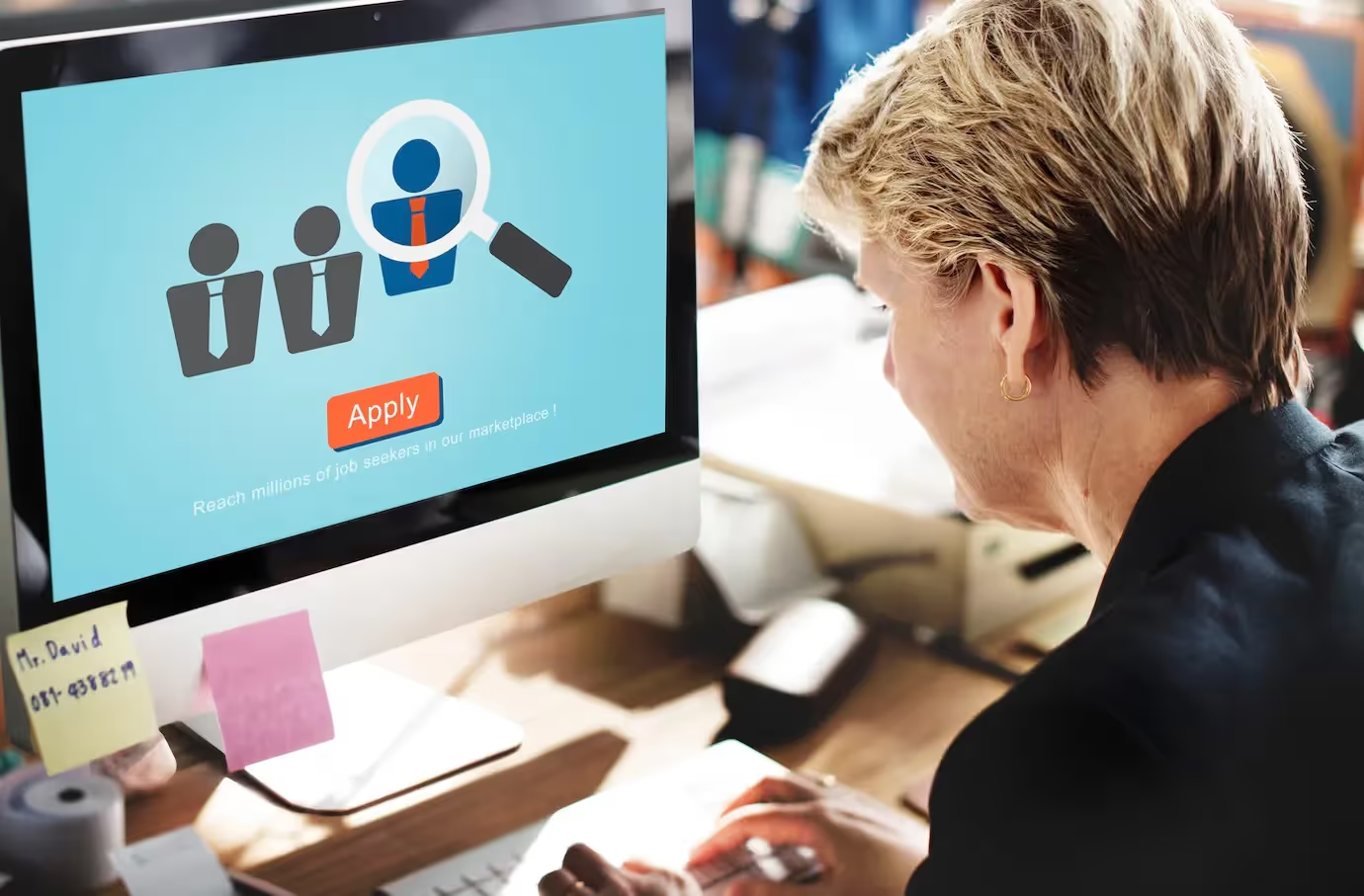
The Core Layers of a Personalization Tech Stack in 2025
Here’s what an elite personalization setup looks like, layer by layer:
1. Customer Data Infrastructure (CDPs, DMPs & Customer Profiles)
Goal: Create a 360-degree unified customer profile.
You need real-time, consolidated data on how customers browse, buy, return, and interact with your brand.
Top Tools:
- Segment – real-time customer profiles and event tracking
- RudderStack – open-source CDP for developers
- Shopify Audiences – tailored for DTC use cases
- Lexer – CDP with a retail focus
Pro Tip:
Connect this layer to every channel, email, SMS, web, loyalty, and support. Without it, you're flying blind.
2. Personalization & Recommendation Engines
Goal: Serve the right product or message at the right time.
These engines learn from customer behavior and deliver personalized content across touchpoints- think “you might also like” or “picked just for you.”
Top Tools:
- Nector.io – AI-driven personalization for e-commerce
- Rebuy – Shopify-native upsell engine
- LimeSpot – dynamic product recommendations
- Algolia Recommend – fast, AI-powered recommendations
“If your site shows the same homepage to every user, you’re doing it wrong.”
- Jordan Carter, CMO at ScaleHaus
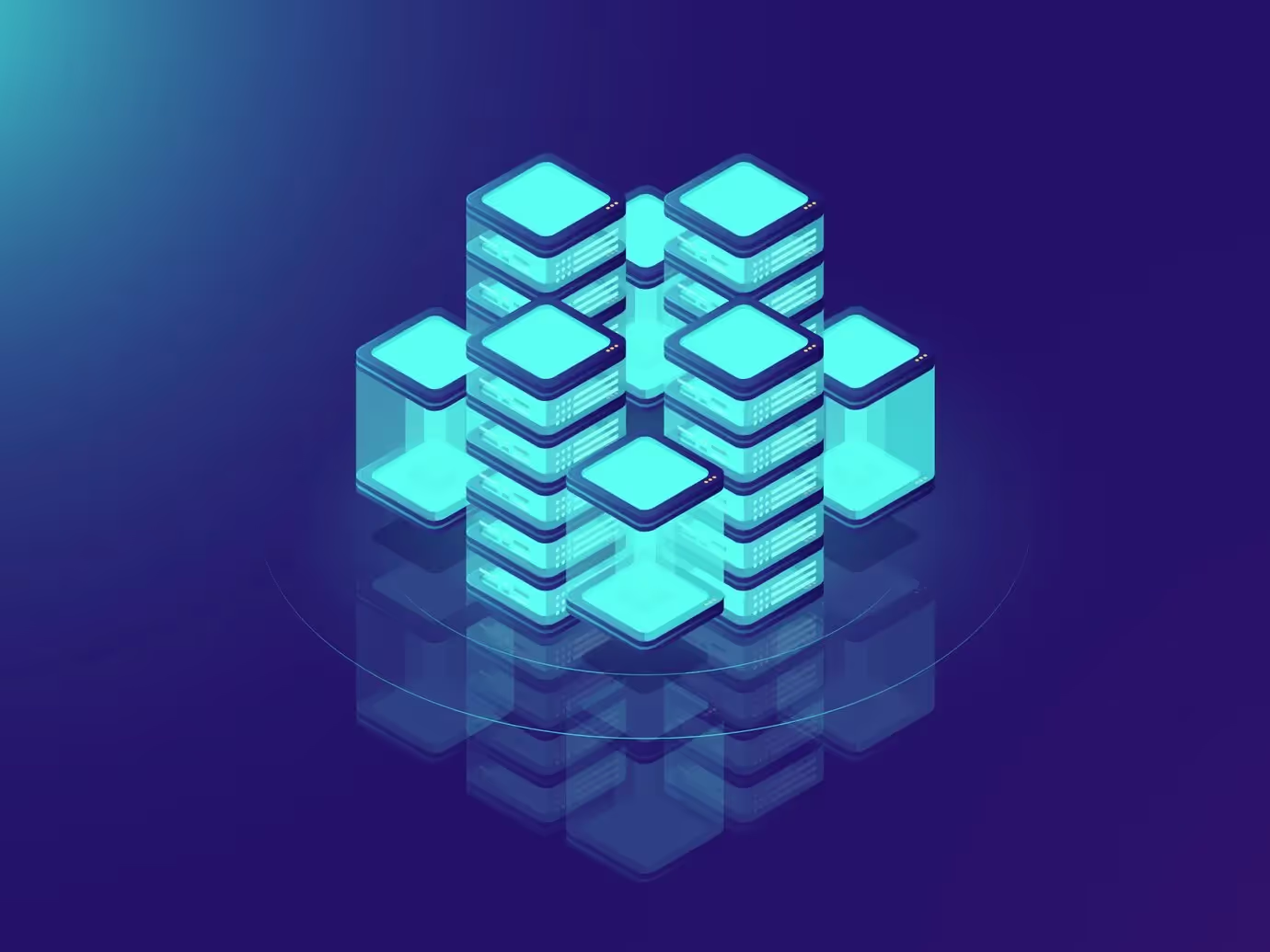
3. Marketing Automation & Retention Journeys
Goal: Automate the entire customer lifecycle with intelligent, personalized flows.
Retention-first automation includes:
- Browse abandonment with smart triggers
- Post-purchase care flows (e.g., product care tips, reorder nudges)
- Loyalty-based triggers (e.g., point thresholds, tier unlocks)
Top Tools:
- Klaviyo – top pick for email + SMS personalization
- Customer io – advanced logic for lifecycle journeys
- PostPilot – automated direct mail based on behavior
- Omnisend – great for omnichannel automation
4. Loyalty & Rewards Engine
Goal: Make returning more rewarding than leaving.
This is where Nector and other loyalty tools shine, by gamifying retention and incentivizing behaviors like:
- Repeat purchases
- Reviews
- Referrals
- Social shares
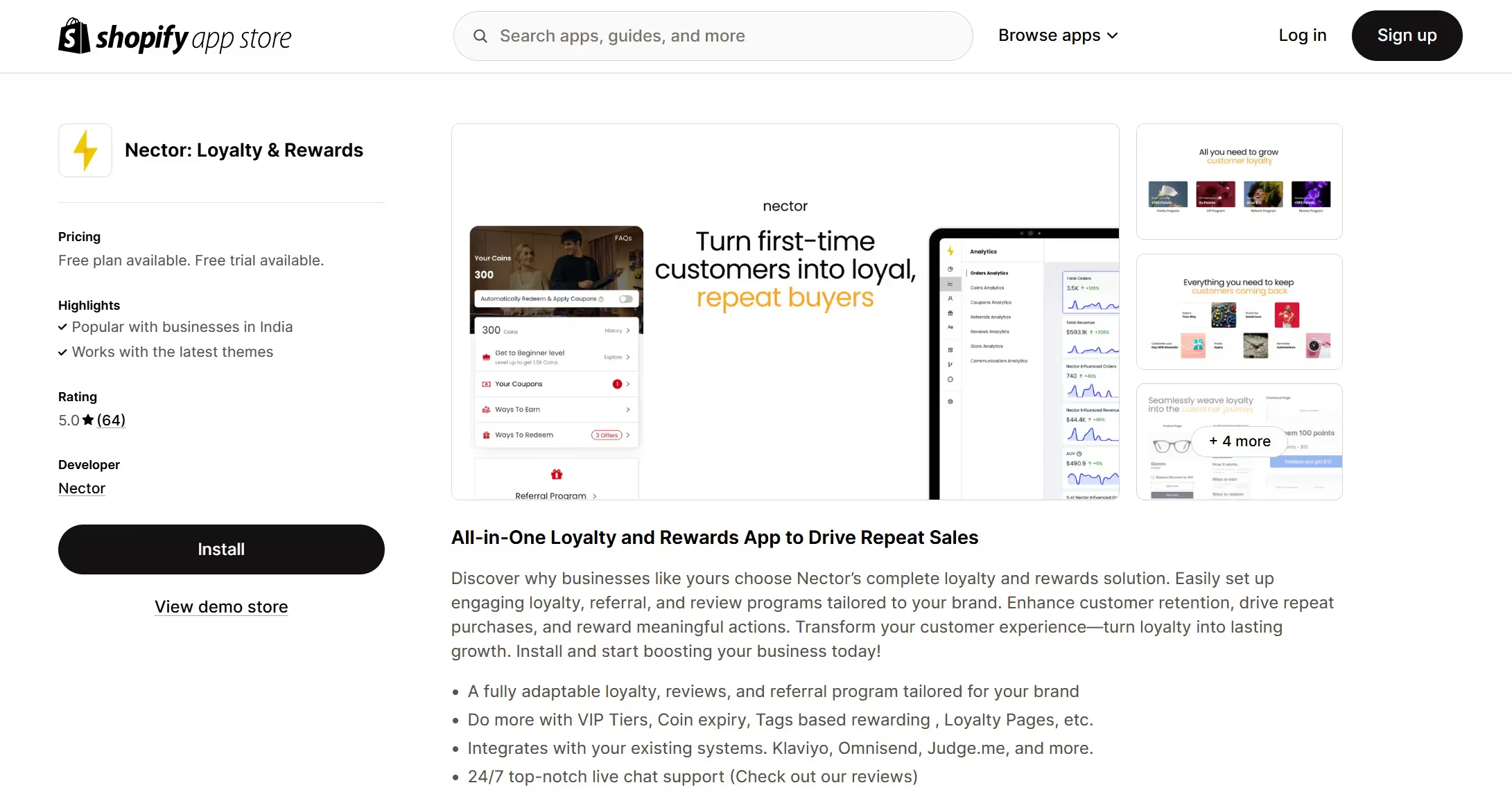
Top Tools:
- Nector – loyalty, referrals, tiers, and deep CRM integrations
- Smile io – quick start for smaller DTCs
- Yotpo Loyalty – better for brands already in the Yotpo ecosystem
- Rise ai – store credit and gift card-centric
Did you know?
Improving customer experience is a major driver of customer loyalty
5. Communication Channels (Conversational & Support)
Goal: Create two-way, personalized conversations—not just broadcasts.
Integrating customer profiles into your support and chat stack means every interaction can be proactive and hyper-relevant.
Top Tools:
- Gorgias – eComm support system tied to Shopify & CRM
- Tidio / Intercom – real-time personalization in chat
- WhatsApp Business API – powerful for reactivation
- Zendesk – integrates deeply with personalization tools
6. On-Site Personalization (Dynamic UX & Offers)
Goal: Adapt your site’s content, popups, CTAs, and offers based on user behavior or segmentation.
Dynamic personalization goes beyond recommendations, it changes the user journey itself.
Top Tools:
- Justuno – personalized popups and banners
- ConvertFlow – smart on-site CTAs
- RightMessage – segmentation-based messaging
- Shopify Scripts – advanced cart personalization for Plus users

How It All Comes Together: A Real-Life Tech Stack Example
Meet: Glowhaus Skincare (a fictional DTC brand built on Shopify Plus)
- CDP: Segment
- Marketing Automation: Klaviyo
- Loyalty Engine: Nector
- Recommendation Engine: Rebuy
- Chat: Gorgias + WhatsApp
- On-Site UX: Justuno
Use Case:
- A customer buys a cleanser.
- Klaviyo triggers a “thanks + usage tips” email.
- Rebuy suggests a moisturizer based on skin type.
- Nector adds points + bumps them closer to the VIP tier.
- WhatsApp message reminds them to restock in 30 days.
- Justuno shows a 15% “VIP-only” popup on the next visit.
That’s personalization in motion, driving a 30% lift in repeat purchases.
Personalization Pitfalls to Avoid
- Overpersonalizing to the point of creepiness
- Using tools that don’t sync with your Shopify data
- Running loyalty or email efforts with no orchestration
- Ignoring retention metrics like LTV, CAC payback, and churn

Retention Metrics That Matter
- Metric: Why It Matters?
- Customer Lifetime Value (LTV): The north star of retention
- Repeat Purchase Rate: How often people come back
- CAC Payback Period: How fast you recoup acquisition spend
- Redemption Rate: Indicates loyalty program health
- Tier Migration: Shows progression and engagement
Final Thoughts: Build for Retention. Personalize with Purpose
You don’t need 50 tools- you need the right tools working together. A well-orchestrated personalization stack doesn’t just feel smart, it's a retention engine that pays for itself.
The brands winning in 2025? They’re not just selling products- they’re building journeys.
Ready to turn personalization into profit?
Get started with Nector and build loyalty flows that convert.
FAQs
1. What is a personalization tech stack in eCommerce?
A personalization tech stack is a combination of tools and platforms that allow e-commerce brands to deliver tailored customer experiences across channels. This includes CDPs, AI recommendation engines, loyalty programs, marketing automation, and more.
2. Why is personalization important for customer retention in 2025?
Because Customer Acquisition Cost is rising, and shoppers are overwhelmed by choice. Personalization makes customers feel valued, increasing the likelihood of repeat purchases.
3. Which tools are essential for an eCommerce personalization stack?
The core tools include:
- CDPs (e.g., Segment)
- Email/SMS automation (e.g., Klaviyo)
- AI recommendations (e.g., Rebuy)
- Loyalty programs (e.g., Nector)
- Support/chat tools (e.g., WhatsApp)
4. What is the role of loyalty programs in personalization?
Loyalty platforms like Nector.io help segment customers, trigger personalized rewards, and create emotional incentives for repeat purchases. They’re critical for retention-focused personalization strategies.
5. How do loyalty and automation tools work together?
When connected, your loyalty tool (like Nector.io) can trigger automations based on behavior: reaching a points threshold, entering a new tier, or hitting an LTV milestone. That’s where the magic happens.
Start Building Customer Retention That Lasts


.avif)

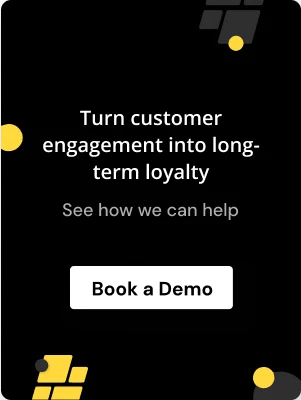

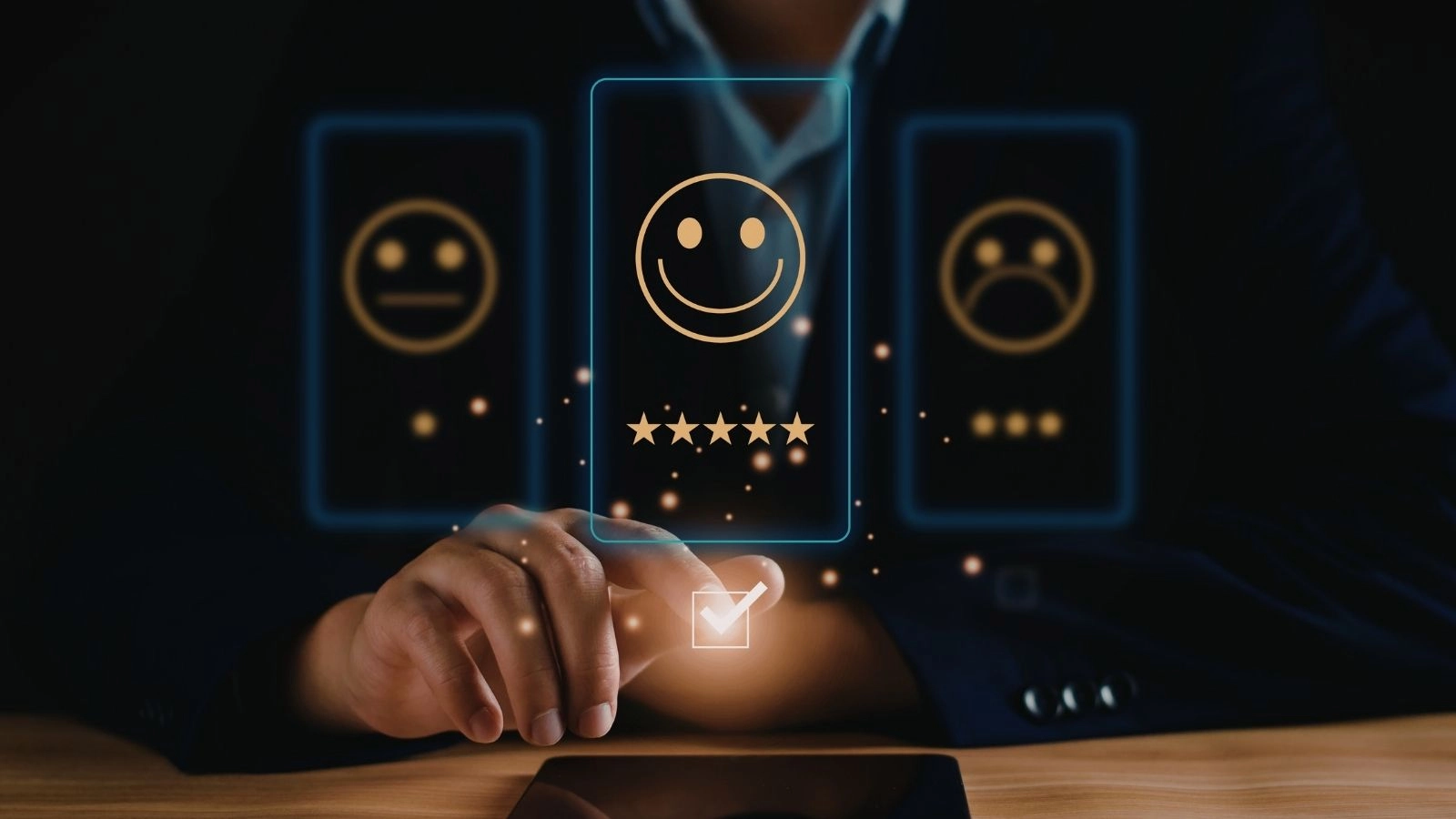
.avif)

